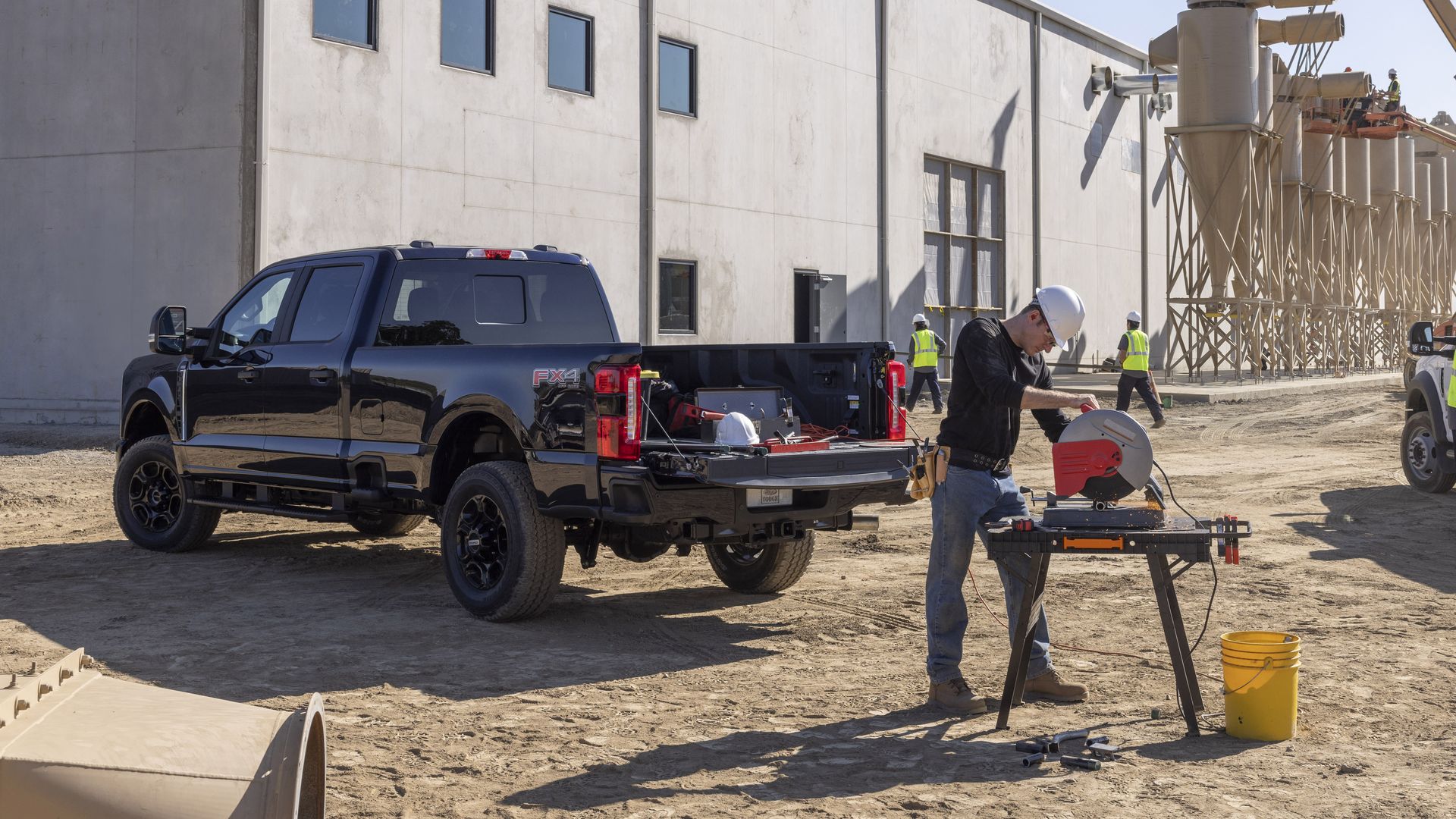Ford's EV-to-pickup switch says a lot about electric car demand
- Joann Muller AXIOS
- JULY 19,2024

The 2023 Ford Super Duty F-250 XL STX. Photo: Courtesy of Ford
Ford Motor Co.'s decision to scrap plans for an electric vehicle hub in Canada so it can produce more gas-powered heavy-duty pickups instead says a lot about the state of today's auto market and the pressure to deliver profitable growth.
Why it matters: Trucks are hot, EVs are not.
- While automakers say they're committed to electrification, they only make money on products customers want to buy.
Driving the news: Ford announced yesterday that it's investing $3 billion to boost output of the Super Duty, the F-150's larger sibling that's popular with tradespeople and commercial customers.
- $2.3 billion of that will be spent to overhaul a factory in Oakville, Ontario, that was previously set to become an EV manufacturing hub.
- A three-row electric SUV that Ford had planned to build in Oakville is getting shelved until 2027, as the automaker announced back in April.
- About 1,800 Canadian jobs will be secured — 400 more than would have been needed to produce the three-row EV, Ford said.
Between the lines: The pivot helped Ford solve two problems.
- The automaker needs the extra truck capacity to keep up with soaring demand; the two factories where it currently builds Super Duty trucks in Ohio and Kentucky are "running flat out," Ford said.
- There aren't enough customers for a three-row EV. Delaying the launch until 2027 will allow the market to mature and buy time for Ford to improve the product and take advantage of emerging battery technology, the company said.
Follow the money: While Ford's EV unit lost $4.7 billion in 2023 (and is on track to lose even more this year), its Ford Pro commercial business earned $7.2 billion in 2023.
- With an estimated $20,000 per vehicle profit on the Super Duty, it doesn't take a genius to figure out why Ford is leaning into trucks for now.
The big picture: Like General Motors and other rivals, Ford has been backing off EV commitments as it becomes clear that the early adopter era is over.
- CEO Jim Farley is increasingly bullish on hybrids as a bridge technology — a strategy that has proven successful for Toyota — and Ford aims to offer hybrids across its entire lineup by 2030.
The intrigue: Ford is moving ahead with plans to erect a new "Blue Oval City" EV manufacturing campus in Tennessee, while its rivals are converting older factories to EV production — with help from the Biden administration.
- GM and Stellantis scooped up a combined $1.1 billion in federal grants for such projects, while Ford didn't apply.
- Ford plans to begin customer deliveries of a new electric pickup truck built at Blue Oval City in 2026, a few months later than originally scheduled.
What's next: Ford says it has other EV efforts simmering.
- The automaker said it's going to "electrify" the next generation of Super Duty trucks, without providing details.
- And a "skunkworks" team in California is developing a smaller, low-cost EV platform capable of underpinning multiple models.
No comments:
Post a Comment